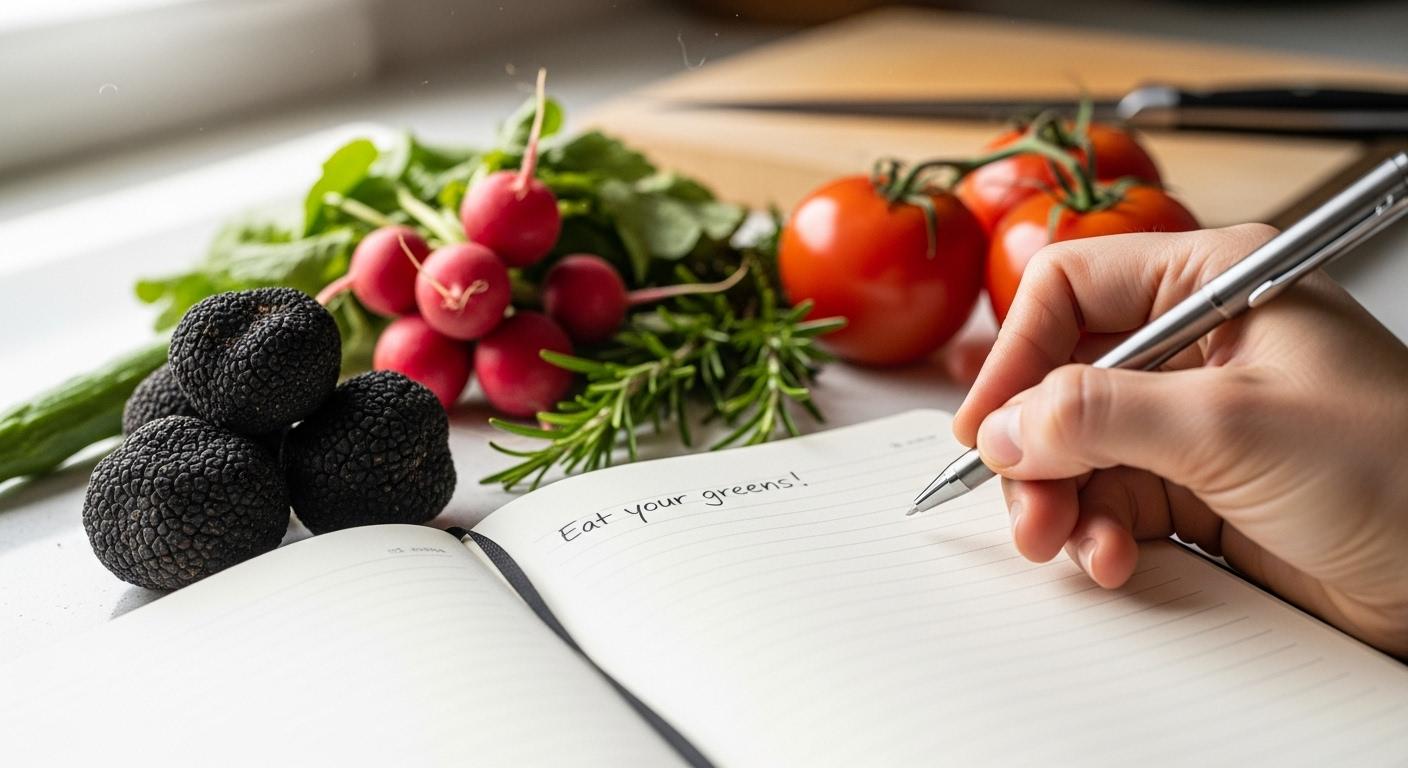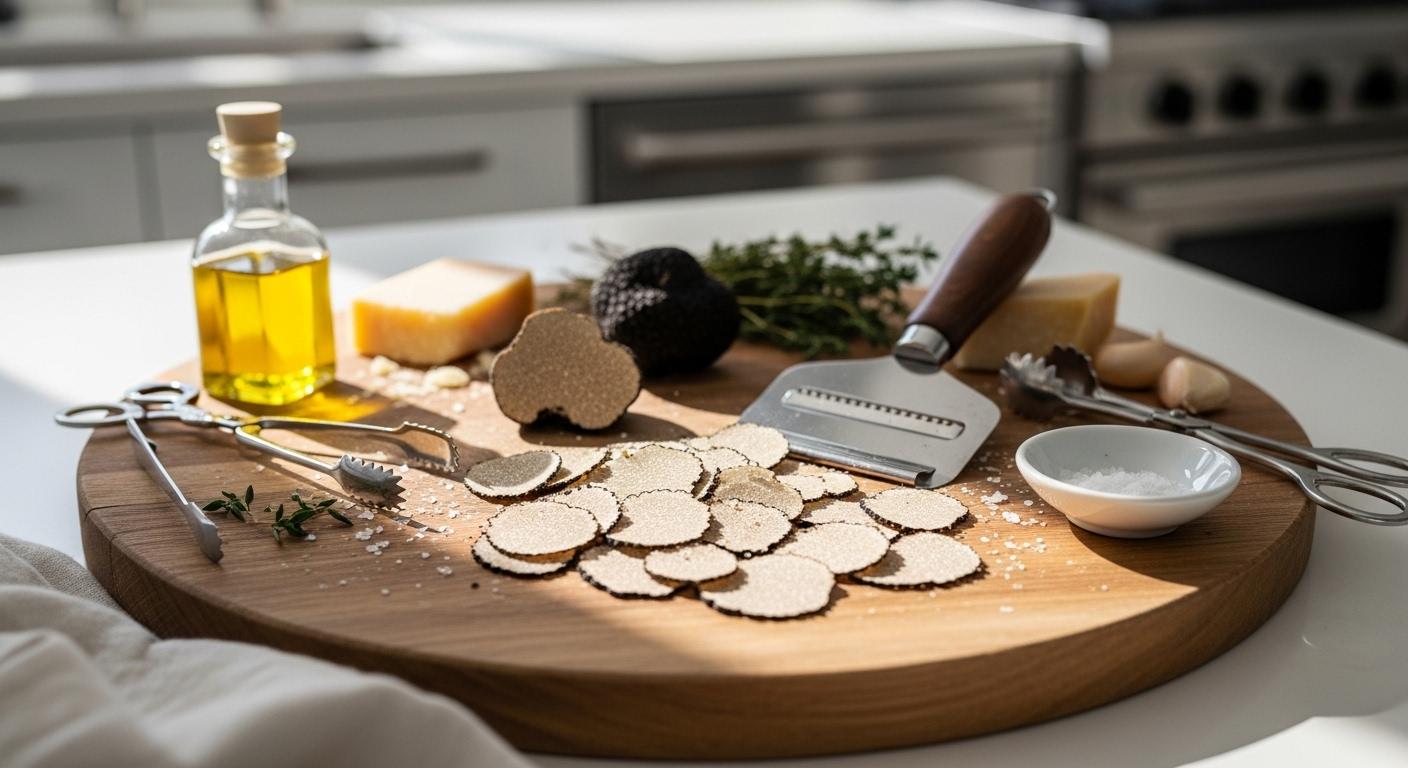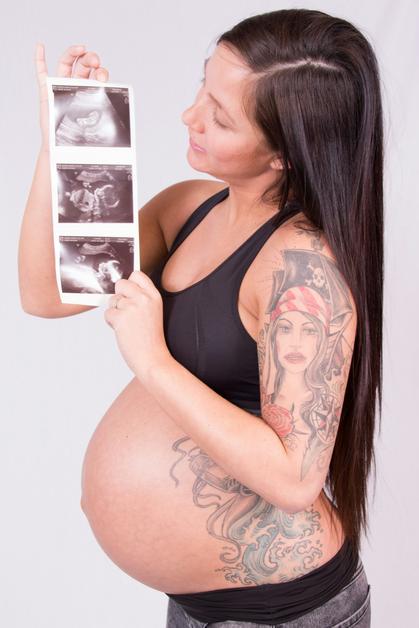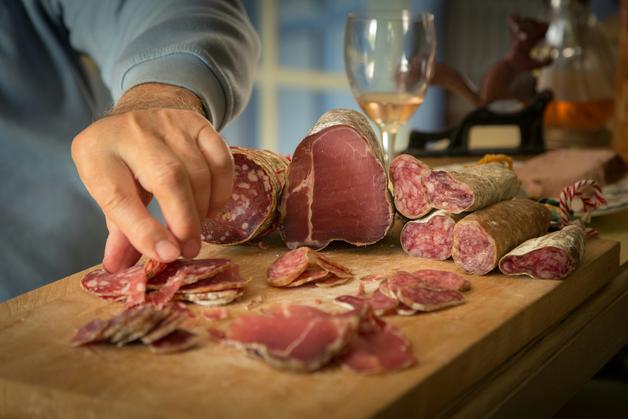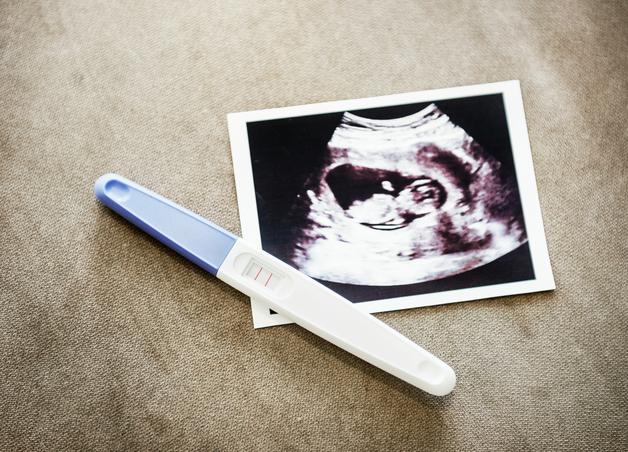Are you craving a dash of sophistication with those truffles during pregnancy, yet a tidal wave of doubts holds you back each time the aroma wafts up from a favourite risotto or you spot a shimmering truffle oil bottle on a store shelf? Questions swirl: Is that subtle fungus safe? Can a decadent chocolate truffle become a tiny treat, or must it be banished till your baby’s first birthday cake? Parenting does not pause for culinary questions—and, let’s be honest, pregnancy brings enough changes without making the world’s most aromatic food a source of anxiety.
Let’s walk together through the world of truffles during pregnancy. From understanding the actual health risks (which are very real but mostly manageable with simple routines) to unravelling every myth about truffle oil and chocolate indulgence, this guide will detail the ground realities on cleaning, cooking, pasteurisation checks, and even the psychological comfort that comes from enjoying foods safely. The journey covers medical findings on foodborne pathogens like Listeria and Toxoplasma, practical advice for resistant cravings or sensitive stomachs, advice on portion control for gestational diabetes, and—because clarity is style—how to ask the right questions at restaurants.
Understanding truffles during pregnancy: food safety and enjoyment
Long considered a luxury, truffles during pregnancy can inspire concern. The reality? Both fresh truffles (the fungi, not the chocolate) and processed products such as oils and pastes are typically safe when sourced reliably and handled smartly. That safety, though, does not rest solely on where the truffle came from, but on how it’s cleaned, cooked, and combined with other potentially risky ingredients.
Two truffle types, two sets of rules
Culinary truffles—those knobby, aromatic fungi—carry greater risk when enjoyed raw, especially if they are wild, unwashed, or shaved over cool foods. Soil-borne bacteria and parasites (notably Listeria monocytogenes and Toxoplasma gondii) pose a mild but persistent risk to the developing fetus, with fresh truffles occasionally picking up these microscopic hitchhikers from their earthy habitat. Cooking, thankfully, is the nemesis of almost all these hazards.
By contrast, chocolate truffles (sometimes misleadingly named, as they’re simply a cocoa-ganache affair) have a different checklist: pasteurised ingredients, no raw eggs, minimal caffeine, a check on alcohol-infused centres, and keen allergy awareness, especially if nuts or soy are involved.
Truffles during pregnancy: cleaning, heat, and protection
Cleaning practices that matter
Cleaning truffles, that humble but essential act, becomes an art during pregnancy—think short, measured strokes with a vegetable brush under a cold water stream, rather than a long soak (truffle aroma, so delicate!). Scrubbing removes surface soil and potential microbial dangers, significantly dropping exposure to Listeria and Toxoplasma. A brief dunk in a diluted vinegar solution (1:9 with water) offers mild disinfection—always well rinsed to avoid any flavour tampering.
Pro Tips:
- Use a separate board and knife for fresh produce;
- Wash hands before and after truffle prep;
- Always refrigerate cleaned truffles in a breathable container with paper towels swapped regularly if damp.
Cooking: the medical science behind the sizzle
“Isn’t truffle best enjoyed raw or barely warmed?” True for aroma, but not for food safety. For truffles during pregnancy, heat is critical. Cooking your truffle-laced dish (risotto, baked pasta, even truffled eggs) to 75°C (165°F) throughout—verified with a food thermometer—destroys most pregnancy-relevant pathogens. Chefs sometimes argue for late addition to save aroma; as a parent-to-be, insist the base dish is steaming hot, and the truffle shavings go on just before serving. If tradition suggests raw white truffle, consider pasteurised truffle products for full peace of mind.
Processed truffle products and smart purchases
On the hunt for safe indulgence
Truffle oil, canned truffles, and aromatic truffle butters populate gourmet shelves. How to choose? Always opt for products clearly labelled “pasteurised” or “sterilised,” as processing at high temperatures kills lurking microbes. Scrutinise packaging: the seal should be intact, expiry dates respected, and, especially for oils, avoid anything described as “artisanal” with fresh chunks floating unless heat processing is guaranteed. For truffle cheeses or butters, pasteurised dairy is non-negotiable.
And truffle salts? These should be used sparingly, particularly for those with hypertension or a risk of preeclampsia—excess sodium is an unexpected culprit in seemingly refined foods.
Storage that protects
- Fresh truffles love cold (4°C or 40°F) and dryness. Dampness encourages spoilage—change towels daily.
- Once opened, truffle products belong in the fridge with tight covers.
- Any truffle that smells odd, goes slimy, or shows visible mould? Discard immediately, no matter the cost.
Nutritional value and balanced indulgence
You might be surprised: truffles during pregnancy add minuscule calories to your diet—think aroma, not fuel. The fibre and micronutrient contribution is genuine but limited; truffles are far from a nutritional staple. Chocolate truffles, on the other hand, can quickly become a sugar and saturated fat bomb—delicious, yes, but always in mindful moderation, especially if gestational diabetes or insulin resistance is a concern.
Eating out: safer choices and smart questions
When pregnancy cravings drag you to a restaurant, don’t hesitate: ask staff whether the dairy is pasteurised, if the truffles are cooked through, and how ingredients are handled. Choose dishes where truffles blend with steaming-hot pasta, creamy but fully heated eggs, or other safe bases—skip raw shavings on a cold plate.
Restaurants might tout artisanal, “wild” elegance, yet traceability, proper storage, and honest answers are your allies.
Special diets, pregnancy health, and mythbusting
First trimester quirks
Morning sickness heightened by earthy smells? Milder, hot preparations may help.
Gestational diabetes, hypertension, allergies
- Limit chocolate truffles, pair small servings with fibre/protein, and always check alcohol presence.
- Avoid truffle salts if sodium is a concern.
- Be extra watchful for fungal allergies or if you’re sensitive to mushrooms.
Unplanned exposure—what next?
If raw truffle slips past vigilance, try not to worry. Contact your healthcare provider, especially if fever or unusual digestive symptoms develop. For those with prior immunity to Toxoplasma (detectable via IgG/IgM blood tests), baseline risk is lower—but basic hygiene still remains your first shield.
Debunking “all truffles are unsafe, always”
Not quite. Cleaned, cooked, and processed truffles are a safe, sometimes joyful part of pregnancy food experiences.
Key Takeaways
- Sensible handling makes truffles during pregnancy a low-risk treat for most, not a forbidden fruit. Clean thoroughly, separate from raw foods, and always cook or reheat to 75°C (165°F).
- Prioritise pasteurised and sterilised truffle products. Reject wild or untraceable options.
- Chocolate truffles are a delight in small servings; always check for pasteurised dairy, alcohol, and allergens.
- Restaurant indulgence is possible—query about raw additions and processing.
- For specialist guidance, regular health checks, and child wellness support, download the application Heloa for tailored, expert advice.
Questions Parents Ask
Should wild or foraged truffles be eaten during pregnancy?
Wild-foraged truffles, especially those without clear origin or expert identification, increase safety questions. If using them, absolute cleaning and cooking in hot, fully cooked dishes are essential. Prefer cultivated or retailer-sourced truffles for assured traceability. Any concern or unusual symptom post-exposure? Consulting a clinician is always a wise first step.
Do truffles clash with prenatal vitamins, medicines?
Truffles—edible fungi and most truffle products—don’t contain active compounds known to disturb vitamin or medication absorption. Still, monitor processed truffle foods for additional ingredients (alcohol, herbs, botanicals). If you start a new food while using prescribed medication, especially blood thinners, it’s safe to check with your doctor.
How much truffle is okay during pregnancy?
There’s no daily quota; truffles are meant as culinary highlights. Generally, a few fine shavings or a modest spoonful of truffle paste per dish is sufficient. For chocolate truffles, limit to one or two small pieces, accounting for overall sugar and caffeine intake—especially if you manage gestational diabetes or related concerns, in which case consult your care provider for tailored advice.
What’s the safest way to prepare truffles at home?
Brush, rinse, and quickly pat dry fresh truffles; combine only with piping hot bases or stews cooked to a centre temperature of 75°C (165°F). Use pasteurised dairy and swiftly refrigerate leftovers.
Which truffle products are best to avoid?
Steer clear of unpasteurised truffle cheese, artisanal oils with fresh truffle chunks, and raw truffle shavings on cold items. Any product with broken seals, expired dates, or odd odour should be discarded without regret.
Can truffles contribute to allergies or sensitivities during pregnancy?
Truffles themselves can be problematic for those with mushroom or mould allergies. Chocolate truffles often contain nuts, soy, and dairy—scrutinising labels is vital. Any new allergic reaction or heightened sensitivity justifies a prompt medical discussion.
Is it safe to eat truffle oil or truffle salt during pregnancy?
Truffle oil is typically safe if sourced from a reputed seller and consumed in normal quantities. Always check for added substances in the ingredient list. Moderation with truffle salts is important, especially if blood pressure is a concern.
By staying alert to the hygiene, sourcing, and preparation of truffles during pregnancy, it’s entirely possible to embrace both safety and deliciousness—medical clarity, culinary delight, and your peace of mind, all balanced bite by bite.
